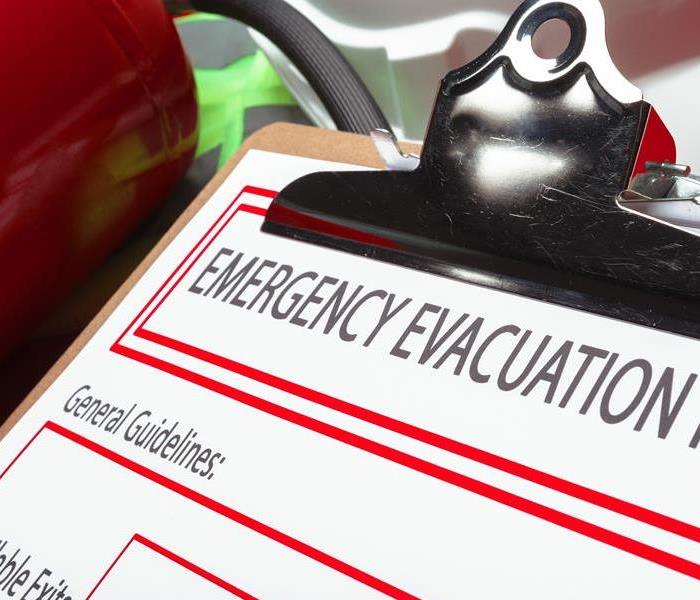Ways to Prepare for a Home Fire
9/20/2022 (Permalink)
It is always a good idea to prepare for any home disaster. Compared to other home accidents, fires are the most common. If you aren't well prepared to handle a home fire, you will experience detrimental losses. Develop a concrete plan to deal with a sudden fire breakout to increase your chances of survival. Here is a comprehensive list to prepare your home for fire.
Make an Escape Plan
The foremost aspect of home fires you should address is creating a detailed escape plan. Start with your house or apartment's blueprint. Familiarize yourself with the layout and make a note of all fire escapes, building entrances and exits, doors, corridors, and windows. Understand the fire alarm system of your home and thoroughly understand your building's fire emergency procedures. If you have children and pets, practice fire drills to ensure they aren't lost if a fire breaks. Your escape plan should include a meeting point after exiting the house or building and ensure to stop anyone from entering the building until the fire department comes and extinguishes the fire.
Remember, every second counts in a fire. Escape plans help you get out of your home quickly, so practice your home fire escape plan twice a year at least. A fire can become life-threatening in merely two minutes. A residence can be engulfed in flames in five minutes. When you notice something out of the ordinary, call SERVPRO of South and Northwest Grand Rapids at 616-662-9700.
Understand the Basics of How to Deal with a Fire
Even if you have a comprehensive plan on how to escape a fire, without knowing how to protect yourself, you won't make it far. The fire isn't the only hazard; flames, smoke, collapsed building structures, open electrical circuits, etc., will also get in the way of your escape and can severely harm you. If your clothes catch fire while escaping, stop, drop and roll to put out the flames. Cover your nose and mouth to prevent smoke inhalation if you need to go through smoke-filled corridors. Always stay close to the ground and never run. Navigating spaces with the smoke clouding your vision becomes hard, so staying close to the ground will stop you from tripping or running into things.
Fire Alarms and Smoke Detectors
Fire alarms and smoke detectors are life-saving devices that should always be operational. Install smoke alarms on every floor and in every bedroom of the house. Smoke alarms are meant to be installed onto ceilings since they detect rising smoke. Regularly get them inspected and change the batteries frequently. Do not switch off the low battery alarm. You might forget to change batteries, and the alarms won't go off if a fire happens. If you stay in an apartment, you must know what the fire and evacuation alarms sound like. A home equipped with smoke detectors and fire alarms is more likely to survive a fire than one without.
Fire Extinguishers
Most commercial buildings and apartments have fire extinguishers. If you live in a house, invest in a good fire extinguisher or two. Keep one in your kitchen and have one for each floor if possible. Different class fire extinguishers are available, so familiarize yourself with each rating system. Class A ratings are effective against paper, wood, textiles, and plastics. Class B is effective against flammable liquid fires, and class C is against live electrical fires. Learn to properly operate an extinguisher, including knowing how to remove the pin lock, aim, and release.
A comprehensive plan can determine the outcome of a life-threatening situation. It is never too late to prepare your home for a fire accident, so keep our detailed information at hand when preparing your home for a fire.




 24/7 Emergency Service
24/7 Emergency Service
